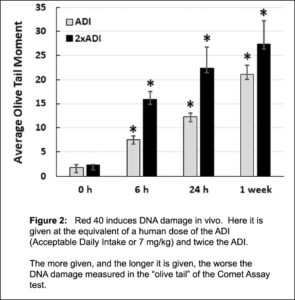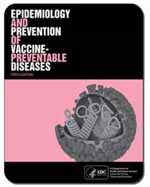 Zhang, Chumanevich, Nguyen, … Hofseth. Toxocology Reports. (11) 221-232
Zhang, Chumanevich, Nguyen, … Hofseth. Toxocology Reports. (11) 221-232
We have long suggested that Red 40 (Allura Red) plays a role in behavioral problems, but here is another angle: it appears likely that Red 40 is also involved in the rise in early-onset colorectal cancer seen over the past decades.
In this study on mice, it has been found that consumption of this food dye does cause DNA damage which is dose-dependent and time-dependent, and which appears clearly at the mouse-equivalent of the dose considered “acceptable” for humans.
Buying that natural-colored candy is more expensive, of course, but not compared to the expense (and suffering) of cancer treatment.




















